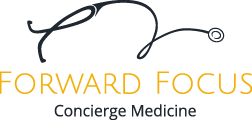Breast Cancer Awareness Month

Breast Cancer Awareness Month is an international health campaign that’s held every October. The month aims to promote screening and prevention of the disease, which affects 2.3 million women worldwide.
Known best for its pink theme color, the month features a number of campaigns and programs aimed at:
- Supporting people diagnosed with breast cancer, including those with metastatic breast cancer
- Educating people about breast cancer risk factors
- Encouraging women to go for regular breast cancer screening starting at age 40 or earlier, depending on personal breast cancer risk
- Fundraising for breast cancer research
In the month of October, there are also specific dates designed to raise awareness of specific groups within the breast cancer community.
Metastatic Breast Cancer Awareness Day (October 13)
October 13 is nationally recognized in the U.S. as Metastatic Breast Cancer Awareness Day. About 168,000 women in the U.S. are estimated to have metastatic breast cancer (cancer that spreads beyond the breast to other parts of the body). Researchers estimate that about 30% of early-stage breast cancers eventually metastasize. The day, which began in 2009, is meant to educate the public about the need for more money to go to the study of metastatic breast cancer and the development of new metastatic cancer treatments.
Men’s Breast Cancer Awareness Week (October 17–23)
Although breast cancer is much more common in women, breast cancer affects men, too. In 2021, President Joe Biden designated October 17 to October 23 as Men’s Breast Cancer Awareness Week. According to the American Cancer Society, 2,790 men in the U.S. will be diagnosed with breast cancer in 2024, and about 530 are expected to die from the disease. But lack of awareness and stigma can be barriers to detection and care in men, trans men, and non-binary people.
In 2024, more than 360,000 people will be diagnosed with breast cancer. But there is hope. Advancements in early detection methods and support continue to increase the chances of survival. When caught in its earliest, localized stages, the 5-year relative survival rate of breast cancer is 99%.
1 in 8 women will be diagnosed with breast cancer in her lifetime. That’s one person every 2 minutes in the U.S. The two most common risk factors of breast cancer are being female and getting older.
Prevention Action Steps:
- Know your risk – family history
- Get screened every year starting at age 40 – well woman exam & mammogram
- Know your normal – breast self-awareness
- Choose a healthy lifestyle – healthy weight, limit alcohol, regular exercise




